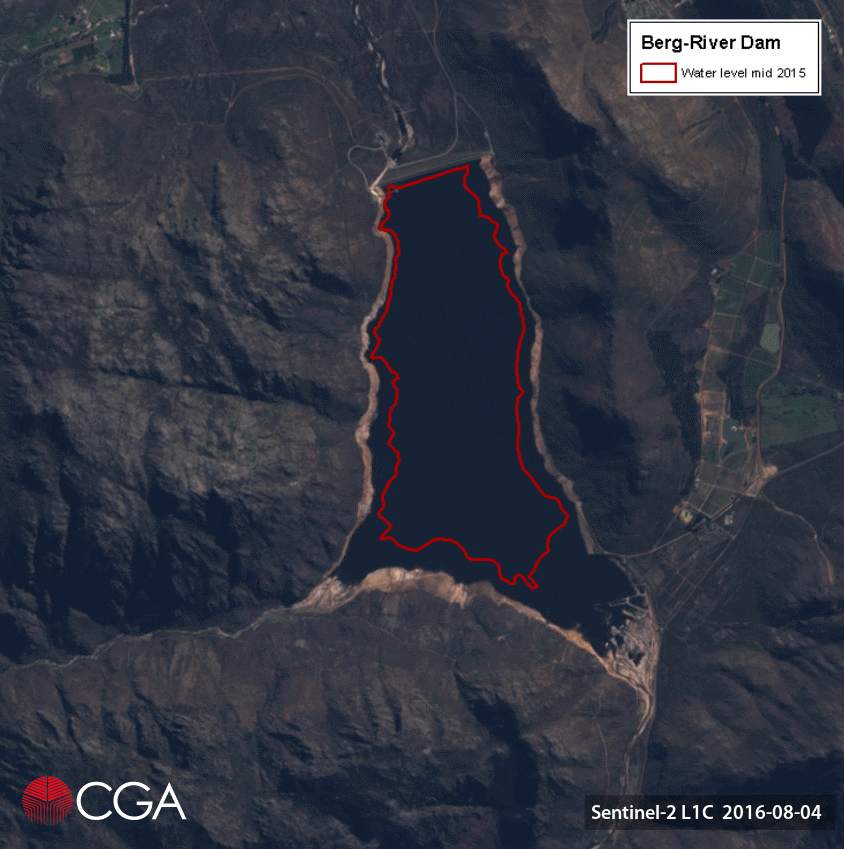The Berg River Dam, the most recently established large dam supplying Cape Town with water. The 68 m tall, concrete-face rockfill dam with a capacity of 130 million cubic metres makes up 14% of the water storage capacity in the Greater Cape Town Region.
Planning of the dam began in 1989, with extensive social and environmental impact studies undertaken before ground was broken in 2004. Completed in 2007 and filled to capacity a year later (2008), it is the first dam in South Africa designed and built in accordance with the guidelines of the World Commission on Dams. It forms the centrepiece of the Berg Water Project, which is an integral part of the Western Cape Water Supply System.
As was the case with the water levels of other large dams supplying the Greater Cape Town Region, the level of the Berg River Dam dropped to record lows in May 2017 (31%), the lowest since its completion in 2007. The water level has since recovered somewhat thanks to the rainfall experienced in June and July (now 38%), but it is still substantially lower than in July 2016 (46%). Experts predict that several years of above average rainfall are needed before Cape Towns dams recover to capacity levels.

